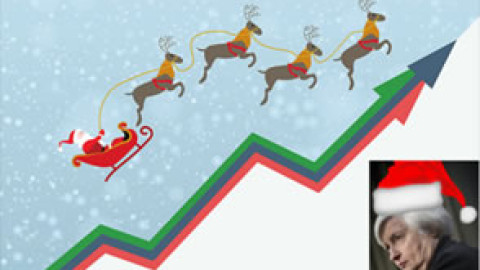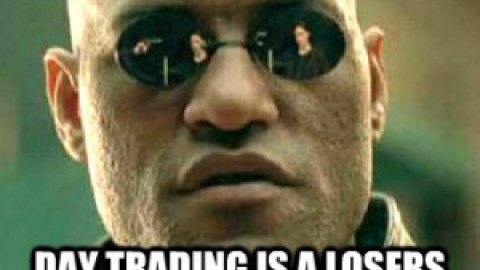Investors Bet Against Tesla —And Lost $8.4 Billion in Five Weeks
Short sellers feel pain as the electric-car maker’s stock soars; ‘I got my butt kicked’
Feb. 9, 2020 4:37 pm ET
By Gunjan Banerji and Gregory Zuckerman
Fred Lande’s heart was pounding as he
watched Tesla Inc. shares charge to an alltime
high of $968.99 last week. It wasn’t
because he was happy.
He’d bet thousands of dollars that the
frantic rally that has more than tripled the
price of the shares in just a few months was
doomed to end, and soon. Concluding his
gamble was wrong, he closed the options
trade at a loss.
“Someone could go buy a brand new Toyota
Camry with the loss that I took,” said Mr.
Lande, who frequently trades for his
personal account and runs a chat room for
retail stock traders.
Tesla’s rocketing stock has meant an
astonishing dive for investors who have
staked their money on the proposition that
Tesla shares were drastically overvalued
and bound to fall. Their cost: $8.4 billion
since January.
These investors have been mostly losing
the battle for years, as Tesla shares
remained buoyant even as the electric-car
manufacturer racked up billions of dollars
in annual losses. Their pain has suddenly
gone from chronic to acute as Tesla shares
have soared to heights that few of its
supporters would have ventured to predict.
Last year, they lost $2.9 billion betting
against Tesla. In the first week of February
alone, they lost $2.4 billion as Tesla shares
posted a string of multibillion-dollar daily
gains, according to data from S3 Partners.
Tesla reached its highest close on Feb. 4, at
$887.06. Though shares slipped since then
to close at $748.07 on Friday, the week saw
a 15% gain, one of the best weeks for Tesla.
Tesla shares have jumped nearly 79% since
January.
Many of these investors are short-sellers,
who borrow shares and sell them with the
hope of profiting by buying the shares back
at a lower price later and pocketing the
difference.
Tesla CEO Elon Musk has made baiting the
short-selling camp a prominent part of his
prolific social media presence, which fans
and detractors alike agree is a significant
part of Tesla’s mystique. This past week, he
tweeted three fire emojis as Tesla’s share
price skyrocketed, which some speculated
was a reference to how shorts were getting
burned. One Twitter user responded: “You
forgot to say something bullish about
#bitcoin.”
In 2018, Mr. Musk tweeted that short
sellers were “value destroyers” and that
short sales should be illegal.
Tesla didn’t respond to requests for
comment.
Adding to the short sellers’ financial toll is
a psychic one: Tesla’s gains are driven in
part by the short sellers’ pain—a “short
squeeze,” in which rising prices force short
sellers to purchase shares to close out
losing wagers.
“Oh damn, I got my butt kicked,” was the
thinking, said Robert Majteles, a private
investor who rode Tesla’s swings up and
down for years before being forced to close
out his bearish position last week. “It’s the
biggest set of losses that I’ve ever taken in
20 years.”
Shift in Sentiment
Tesla’s short interest fell this year to its lowest
level since 2010, when the stock began trading.
Shorted shares as a percentage of shares
available for trading
Those losses have become other traders’
winnings, luring many more into the fray.
Tesla has become one of the most popular
stocks to trade ever. More than $55 billion
worth of shares changed hands Tuesday,
the most for a single stock since at least
1999. Options volumes have skyrocketed, as
traders big and small look to profit from the
car maker’s wild moves.
The stock has been volatile in the past,
giving short-sellers windows to declare
victory from time to time. Tesla shares slid
to a low of $178.97 last June as worries
grew about Mr. Musk’s ability to pull off his
ambitious plans. They’re up about 320%
since then.
The battle between Tesla believers and
skeptics has captivated Wall Street. As
Tesla shares went parabolic—the rare
situation when the price chart of a widely
held stock rises almost vertically over a
period of days or weeks—traders recalled
previous short-squeeze episodes, such as
the battle over wireless standards that
drove a 2,600% gain in Qualcomm Inc. in
1999.
In one sign of Tesla’s place in the zeitgeist,
typing “should I” into a Google search
recently prompted an autofill that read
“should I buy Tesla stock.”
For almost every bullish investor, there is
an equally passionate bearish one. Another
popular Google query last week read,
“should I short Tesla.”
Bears point to how Tesla has never posted
an annual profit and has previously missed
numerous financial and production targets.
They note Mr. Musk’s penchant for
overstatement, including an infamous 2018
episode in which he claimed to have lined
up funding for a buyout, leading to a
Securities and Exchange Commission
settlement that temporarily stripped him
of his chairmanship. They say other car
companies will likely catch up to Tesla’s
strides in electric vehicles—German auto
maker Porsche last year rolled out its first
ever electric vehicle, a sport sedan that is
aimed at the same market Tesla targets—
and that the business of making cars is
notoriously boom and bust, even for the
most storied firms.
“This is a car company, yes a higher-end
one, but it’s still a car company, with the
same low margins of other auto makers,”
said James Chanos, the noted short seller
who runs New York hedge fund Kynikos
Associates and has been betting against
Tesla for more than six years.
James Chanos, who runs New York hedge fund
Kynikos Associates, said he would continue to
short Tesla’s stock despite big losses recently.
PHOTO: DAVID PAUL MORRIS/BLOOMBERG NEWS
Mr. Chanos, who said Tesla’s recent profits
can be attributed to its sales of tax credits,
rather than earnings from car sales, said he
won’t end his short positions despite
recent deep losses. People close to the
matter said his bearish Tesla position
amounts to about 2% of his firm’s portfolio.
Other funds burned by Tesla’s rally include
Lakewood Capital Management and David
Einhorn’s Greenlight Capital, The Wall
Street Journal has reported.
Steve Eisman, an investor who was among
those who correctly bet against subprime
mortgages more than a decade ago,
recently told Bloomberg Television that he
closed his bearish bet against Tesla. Mr.
Eisman declined to be interviewed through
a Neuberger Berman spokesman .
Tesla fans believe time is on the company’s
side and will bear out Mr. Musk’s vision of
bringing electric vehicles to the masses.
They have faith profits eventually will flow
to the auto company, and tout its plans to
create a fleet of robot taxis and sleek in-car
tech features.
“Tesla is really a technology company that
will have a profound effect on the price of
oil and gas…reducing the use of carbon
emissions, which is why China has been so
accommodating” in providing support for a
Shanghai factory built last year, said
Douglas Eisenberg, 59, an attorney in West
Orange, N.J. He owns a few hundred shares
of the stock in his retirement account,
though he has also sold call option
contracts that raise cash but limit the value
of the investment. “Tesla will one day be
the largest company in the world,” he said.
ADVERTISEMENT
In early January, Tesla became the most
valuable auto company in U.S. history,
passing the peak valuation of Ford Motor
Co. in 1999. Tesla’s market value now
surpasses that of Ford, General Motors Co.
and Fiat Chrysler Automobiles NV
combined.
The big swings in the firm’s shares have
presented ample opportunity to nimble
WSJ’s Tim Higgins explores how CEO Elon Musk
turned Tesla into the most valuable U.S. auto maker of
all time. Photo: Philip Pacheco/Getty Images
How Tesla’s Stock Jumped 200% in Half
a Year
traders. Bullish options tied to Tesla stock
hitting $1,000 would have cost a trader
about $6 on Jan. 30, according to data from
Trade Alert. Last week, they could be
bought or sold for more than 300 times
that.
That has led to other unusual trading
dynamics. Options activity can further
boost the stock as traders buy shares in
order to hedge their derivatives positions.
The volatility has been a boon to retail
investors like Khoa Anh Nguyen, a
Montreal-based pharmacist, who has
profited from Tesla’s surging stock
price. He says he has been scooping up
bullish options contracts tied to the stock’s
advance over the past month, accumulating
more than $100,000 in profits.
He has recently been considering buying
more contracts, pegged to the shares
jumping even higher. “I believe in Tesla,”
Mr. Nguyen said.
Source: FactSet
SHARE YOUR THOUGHTS
Do you think Tesla’s stock price will continue its
climb this year? Join the discussion below.
Amy Wu Silverman, a managing director at
RBC Capital Markets who recommends
derivatives trades to clients, said she has
been fielding calls from clients trying to
predict how high the stock might go.
“There’s obviously a cult identity around”
the company, Ms. Wu Silverman said. “That
is all anyone wants to talk about.”
She has personally bought bearish put
options on the stock, contracts that have
sunk in value as the stock has continued its
climb. “Tesla is my widowmaker,” she said.
Some investors believe the market will
inevitably move on from the Tesla story, as
developments in business and economics
potentially lessen the firm’s import. John
Goetz, president and co-chief investment
officer of Pzena Investment Management,
said one reason his firm has built a big
stake in Volkswagen AG is a belief that the
German auto maker, not Tesla, will become
the dominant player in electric vehicles.
“VW is introducing more models over the
next three years than Tesla ever will have,”
he said.
Elon Musk unveiled Tesla’s Cybertruck in
November.
Each day this year, as Mr. Goetz has
watched the moves of the two stocks, he
has become more astonished. Volkswagen
shares have slipped about 6% so far in
2020.
Mr. Goetz has become concerned Tesla
might use its richly priced shares to make
an acquisition or expand its business in
other ways, creating more competition for
Volkswagen. Still, Mr. Goetz remains
confident Tesla will stumble and
Volkswagen will succeed, at some point.
Dan Ives, an analyst covering the stock at
Wedbush Securities, raised his price target
on Tesla to $710 after the company’s latest
quarterly results, a 92% jump from his prior
target in early January. He thinks the
shares could hit $1,000.
Other analysts tracking the stock have
raised targets even more—at least one sees
the shares hitting $7,000. The ever-higher
projections have helped lift the stock price
and ignite demand among investors who
simply buy stocks because they are rapidly
rising.
“There’s a fear of missing out on Tesla,”
said Mr. Ives. “They don’t want to come to
the party at 2 a.m.”
—Elisa Cho and Jim Oberman contributed
to this article.
Write to Gunjan Banerji at
Gunjan.Banerji@wsj.com and Gregory
Zuckerman at
gregory.zuckerman@wsj.com
© 2020 Dow Jones & Company, Inc. All Rights Reserved.









S&P 500 & NASDAQ:Technical Analysis Elliott Wave Trading
https://youtu.be/GirqxzXqod0
Stock Market S&P 500 [SPX] Index and NASDAQ [NDX] Technical Analysis Elliott Wave for Investing trends or day trading.
Overview: The SP500 and NASDAQ short term tops in play
SPX S&P 500 Elliott Wave : Wave ii)
SP500 Trading Strategy: SP500 if the 3700 becomes the support then trade long
Looking to Refine Your Trading and Technical Analysis Skills?
TradingLounge’s 20 DAY TRIAL Or our SPECIAL DEAL 3 Months for the Price of 1 Month https://tradinglounge.com/